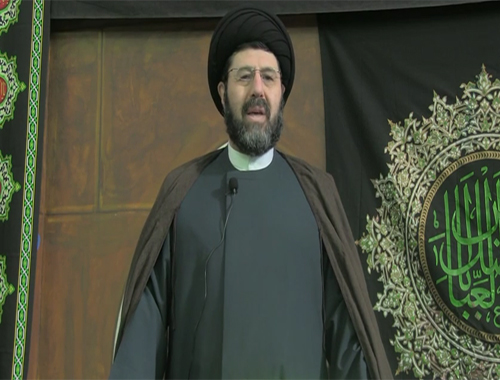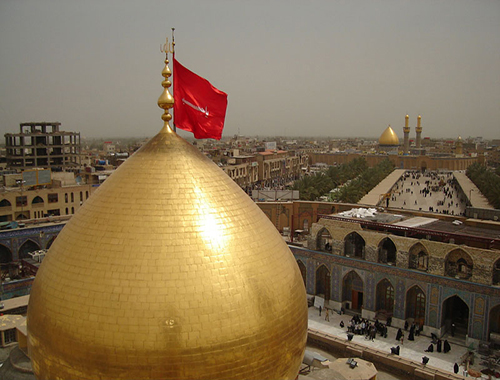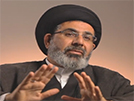verse6
- Details
- Hits: 2261
(6) يَا أَيُّهَا الَّذِينَ آمَنُواْ إِذَا قُمْتُمْ إِلَى الصَّلوةِ فاغْسِلُواْ وُجُوهَكُمْ وَأَيْدِيَكُمْ إِلَى الْمَرَافِقِ
وَامْسَحُواْ بِرُؤُوسِكُمْ وَأَرْجُلَكُمْ إِلَى الْكَعْبَينِ وَإِن كُنتُمْ جُنُبًا فَاطَّهَّرُواْ وَإِن كُنتُم مَّرْضَى
أَوْ عَلَى سَفَرٍ أَوْ جَاء أَحَدٌ مَّنكُم مِّنَ الْغَائِطِ أَوْ لاَمَسْتُمُ النِّسَاء فَلَمْ تَجِدُواْ مَاء فَتَيَمَّمُواْ
صَعِيدًا طَيِّبًا فَامْسَحُواْ بِوُجُوهِكُمْ وَأَيْدِيكُم مِّنْهُ مَا يُرِيدُ اللّهُ لِيَجْعَلَ عَلَيْكُم مِّنْ حَرَجٍ وَلَكِن
يُرِيدُ لِيُطَهَّرَكُمْ وَلِيُتِمَّ نِعْمَتَهُ عَلَيْكُمْ لَعَلَّكُمْ تَشْكُرُونَ
Section 2
Special cleanliness for Prayer - Equity enjoined
Prescribed cleanliness for prayer - Equity and piety enjoined to fear Allah alone and not the enemies.
6. " O'you who have Faith! when you stand up for prayer, wash your faces, and your hands up to the elbows, and wipe a part of your heads and your feet up to the ankles; and if you are polluted, then perform a total ablution; and if you are sick or on a journey, or one of you comes from the privy, or you have touched the women and you can find no water (for ablution or major ritual ablution), then betake yourselves to clean soil and wipe a part of your faces and your hands with some of it. Allah does not intend to put on you any difficulty, but He intends to purify you, and to complete His favour upon you in order that you might be thankful."
Commentary:
In the former verses there were different statemests mentioned about: ' bodily purification and some material bounties '. This verse has pointed to the ' soul purification ' and what causes the purification of the self of Man. Here, a notable amount of the ordinances upon: ablution, major ritual ablution, and dry ablution have been referred to, the which are effective in soul purification. At first, it addresses the believeing people and states the ordinances of ablution as follows:
" O'you who have Faith! when you stand up for prayer, wash your faces, and your hands up to the elbows, and wipe a part of your heads and your feet up to the ankles; ..."
Thus, only that part of the hand, has been mentioned in the verse which must be washed. But its manner in the practice of the Prophet (p.b.u.h.) to us by Ahlul-Bayt (a.s.)denoting that the elbows must be washed down to the fingers.
Then, it pays to the ordinance of the major ritual ablution when it says:
"...and if you are polluted, then perform a total ablution; ..."
It is clear that the objective meaning of the phrase: ' then perform a total ablution ' is to wash the whole body thoroughly.
The Arabic term /junub/ philologically means ' something goes away'. So, a person in a state of ritual impurity is called /junub/ for the reason that the one must avoid doing actions such as: establishing prayer, staying in a mosque and the like of them while the person is in that state.
By the way, when the Holy Qur'an in this verse enjoins the persons in the state of ritual impurity to perform a major ritual ablution for establishing prayers, it is understood that major ritual ablution substitutes ablution.
Then, the verse continues its words referring to the statement of the ordinance of ' dry ablution ', for the person who gets up and intends to keep prayers. It says:
"...and if you are sick or on a journey, or one of you comes from the privy, or you have touched the women and you can find no water (for ablution or major ritual ablution), then betake yourselves to clean soil ..."
Next to this statement, the style of performing dry ablution is shortly stated. It says:
"...and wipe a part of your faces and your hands with some of it. ..."
And, to make it clear that there has been no restriction in the previous commandments when all of them have been legitimated for the sake of some considerable expedences, at the end of the verse, it says:
"... Allah does not intend to put on you any difficulty, but He intends to purify you, and to complete His favour upon you in order that you might be thankful."
In deed, the statements mentioned in the holy verse once more emphasizes on this fact that all divine commandments and Islamic enjoinments are assigned for the sake of people and for the protection of their rights. There has been no aim other than that. By these instructions, Allah intends people provide both spiritual and bodily purification for themselves.
However, the final sentence of the holy verse states a general law. It denotes that the divine ordinances, in no aspect, are in the form of difficult proposals or onerous duties.











